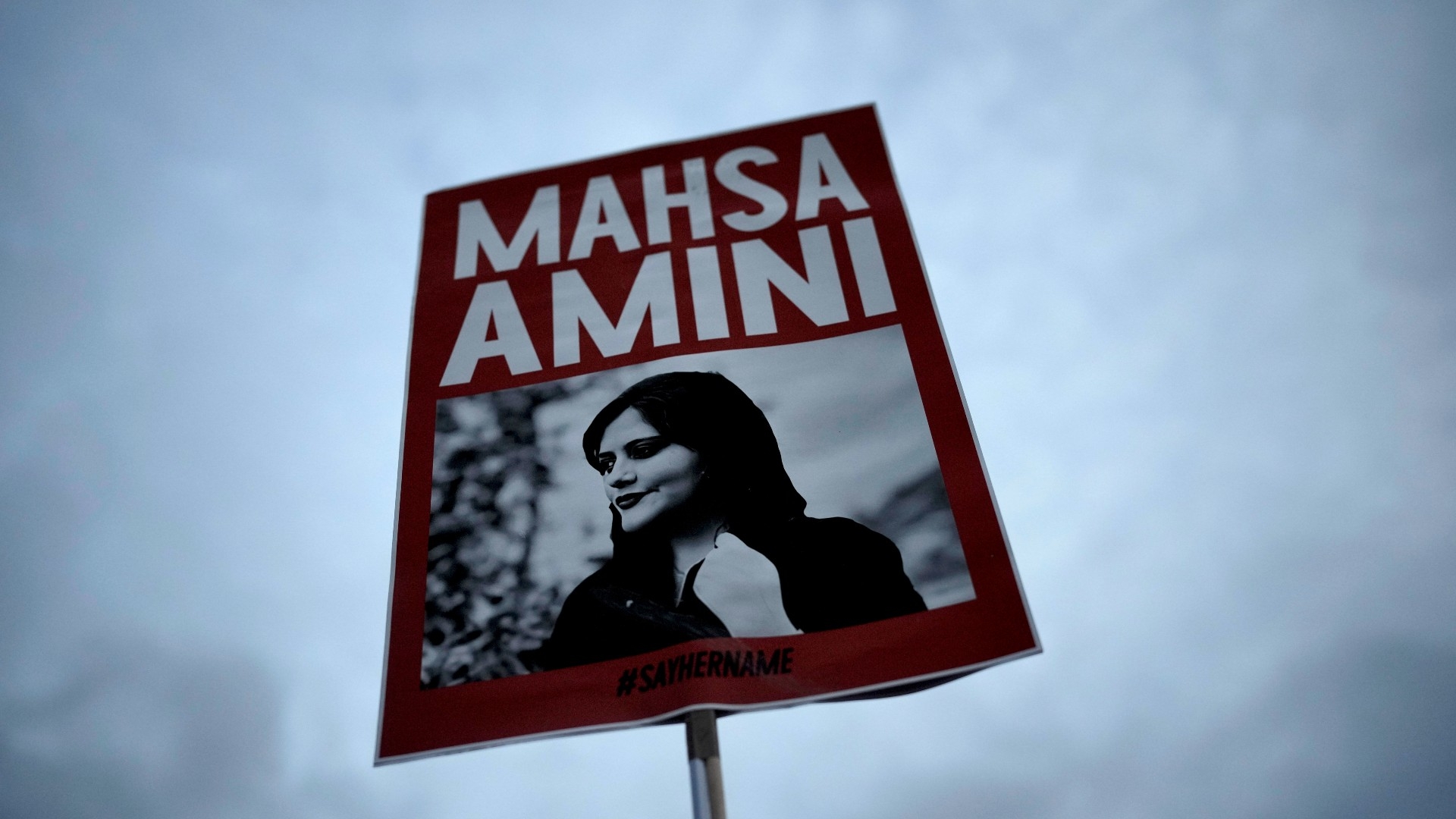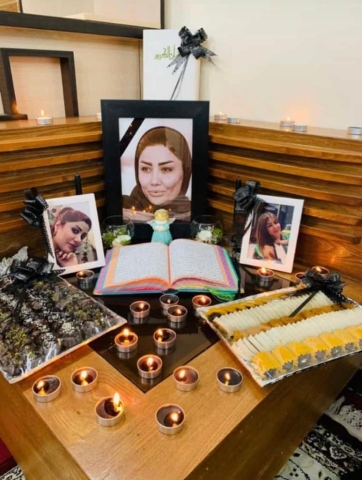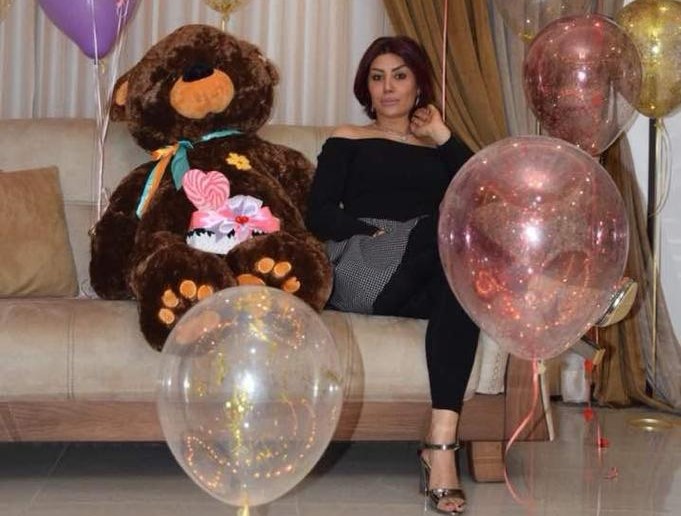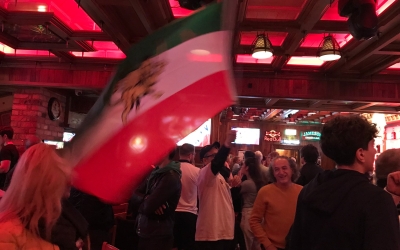Iran protests: Iranian-Arab women's rights activists dying in Khuzestan crackdown

The body of Atefeh Naami, an Iranian-Arab activist based in the city of Karaj near Tehran, was found on the balcony of her home on Saturday, days after she was detained by security services for taking part in protests.
Though the unexplained death of a young woman following arrest in Iran has become something the country is all too familiar with, the brother of the 37-year-old minority rights campaigner said the news still came as a shock.
"I was totally shocked and devastated after I heard from my family there that my sister was killed," said Mohammed Amin Naami, who is also an activist and is now based in Europe.
He said that when her family found her, she had a gas pipe taped to her mouth, in what looked like a suicide attempt. However, the family has rejected this, saying it was staged and that she had marks of torture on her body.
Stay informed with MEE's newsletters
Sign up to get the latest alerts, insights and analysis, starting with Turkey Unpacked
If Atefeh was indeed the victim of foul play, she is the latest target in a spate of killings and abductions that has hit residents of Iran's Arab-majority Khuzestan province - known as Ahwaz to locals - since the beginning of the Mahsa Amini protests.
Both Mohammed and his sister have long campaigned for the right for Arabs in Iran to be taught in their own language in schools, just one of a number of grievances that the minority have long held against the Islamic Republic.
It's something Mohammed has suffered personally, apologetically preferring to speak to Middle East Eye in Persian than Arabic, as his grasp of his native language was weaker.
"I had this fear that since she has long years of activities in terms of cultural and civic activism for the Ahwazi people, I was worried that she would face the same fate as the other Ahwazi prisoners and activists," Mohammed said.
Atefeh had taken a leading role in protests over the death of Amini, a 22-year-old Kurd who died in police custody in September after being arrested for allegedly wearing her hijab "inappropriately".
The demonstrations that followed her death - calling for an end to Iran's laws on women's dress and the so-called "morality police" that enforce them - have been some of the most widespread in years, and largely women-led.
As both a woman and a member of an ethnic minority group - "doubly oppressed" in Iran, as Mohammed put it - Atefeh could easily identify with Amini and the violence she had been subjected to at the hands of the state.
"She was firmly against the discrimination against women's rights and always told her other friends that we should take a step toward this change," a friend of Atefeh's told MEE from Karaj.
"She was a brave girl who strengthened the rest of her friends. She always said that oppression and discrimination would not remain."
Unexplained death
The friend does not believe the official claim that Naami took her own life.
According to her family, Naami's body was buried in a small service on Monday, without a medical report being issued and without traditional burial rites, after being taken back to Khuzestan by security services.
"I know that they killed Atefeh, and now they say she committed suicide," said her friend.
"She was a girl full of energy and always full of enthusiasm. I cannot believe this stupid story that the government is telling."
Mohammed said he and other members of Atefeh's family had also faced threats from the state.
He said he had received a number of anonymous calls threatening him, saying he shouldn't feel secure just because he lived in Europe. "Our hand's reach is great and we will get you one day," said one.
For his family still living in Iran, the risk is greater still. Mohammed said his brother had called him on Tuesday "so scared", and said he had been approached by an intelligence agent who threatened him over his brother's activism, accusing him of "spreading propaganda and this information in the media, in the West and in the Arab and Persian media".
"My family, especially my brothers and sister, are under pressure," Mohammed said.
Longstanding issues
Ahwazi Arabs have complained of discrimination in Iran for decades. Apart from the repression of the Arabic language and other cultural practices, Khuzestan has also become infamous for pollution.
The city of Ahvaz has regularly been branded the most polluted city on Earth by the World Health Organisation (WHO) and respiratory diseases and cancer are widespread.
A number of armed groups have formed there, including the Arab Struggle Movement for the Liberation of Ahwaz (ASMLA) and the Democratic Revolutionary Front for the Liberation of Arabistan (DRFLA), the latter hitting headlines after taking hostages in the Iranian embassy in London in 1980, calling for the release of Arab prisoners in Iran.
Khuzestan also became a key territory during the Iran-Iraq war, with many believing then-Iraqi President Saddam Hussein would seek to annex the Arab-majority area. In the end it suffered some of the heaviest casualties of the war.
Despite these issues, a friend of Naami's based in Ahvaz told MEE that it had taken some time for the province to join the Mahsa Amini protests.
"In the first weeks after Mahsa Amini's death, Ahvaz, unlike many other cities in Iran, did not have many anti-regime protests, which may be related to the traditional and religious nature of the people of Khuzestan province," she said, speaking on condition of anonymity.
However, as wider issues began to get absorbed into what had initially been demonstrations focused on the issue of women's rights, she said the province began to erupt as well.
The Hamshahri newspaper said there had been 105 indictments issued by the Iranian judiciary against protesters in Khuzestan by the end of October, compared to 110 in Amini's native Kurdistan province.
According to rights activists, a number of prominent Ahwazi campaigners have been arrested and "disappeared" into Iran's jail network in recent months. These include musician Saeed Hamidi, Saeed Helechi, an Ahwazi poet and translator, and Hadi Manabi, a photojournalist and environmental campaigner.
The Ahwaz Human Rights Organisation (AHRO) also reported examples of two young protesters, 18-year-old Mahdi Farhani and 17-year-old Ali Bawi, who died following their arrest by the security services.
The former's body was handed back to his family on 24 October, who were told to quickly bury him, while the latter's body was found that same day floating in a river. Security officials reportedly said he had fallen in and drowned.
"These days, I hear so many lies from the government that it is tough to believe their words," said the woman from Ahvaz.
"They kill people themselves, then they say that the victim committed suicide."
United minorities
On Monday, an Iranian general said that over 300 people had been killed since the beginning of demonstrations in mid-September, which he said included dozens of security force members. Rights groups say the figure of protesters killed is much higher.
Iranian authorities said that more than 2,000 people have been charged with offences, with at least six people sentenced to death.
Despite the repression, however, the protests have put Iran's minorities in the spotlight.
The Kurdish slogan "Women, Life, Freedom" has become the rallying cry for activists across the country, crossing ethnic and linguistic boundaries.
Demonstrations have broken out in Baluchistan, West Azerbaijan and other regions with high minority populations.
Naami's friend in Karaj said the protests had united Iran's opposition and crossed the boundaries that had existed between the country's minorities.
"The minority is now the government and its supporters," she said.
This article is available in French on Middle East Eye French edition.
Middle East Eye delivers independent and unrivalled coverage and analysis of the Middle East, North Africa and beyond. To learn more about republishing this content and the associated fees, please fill out this form. More about MEE can be found here.








